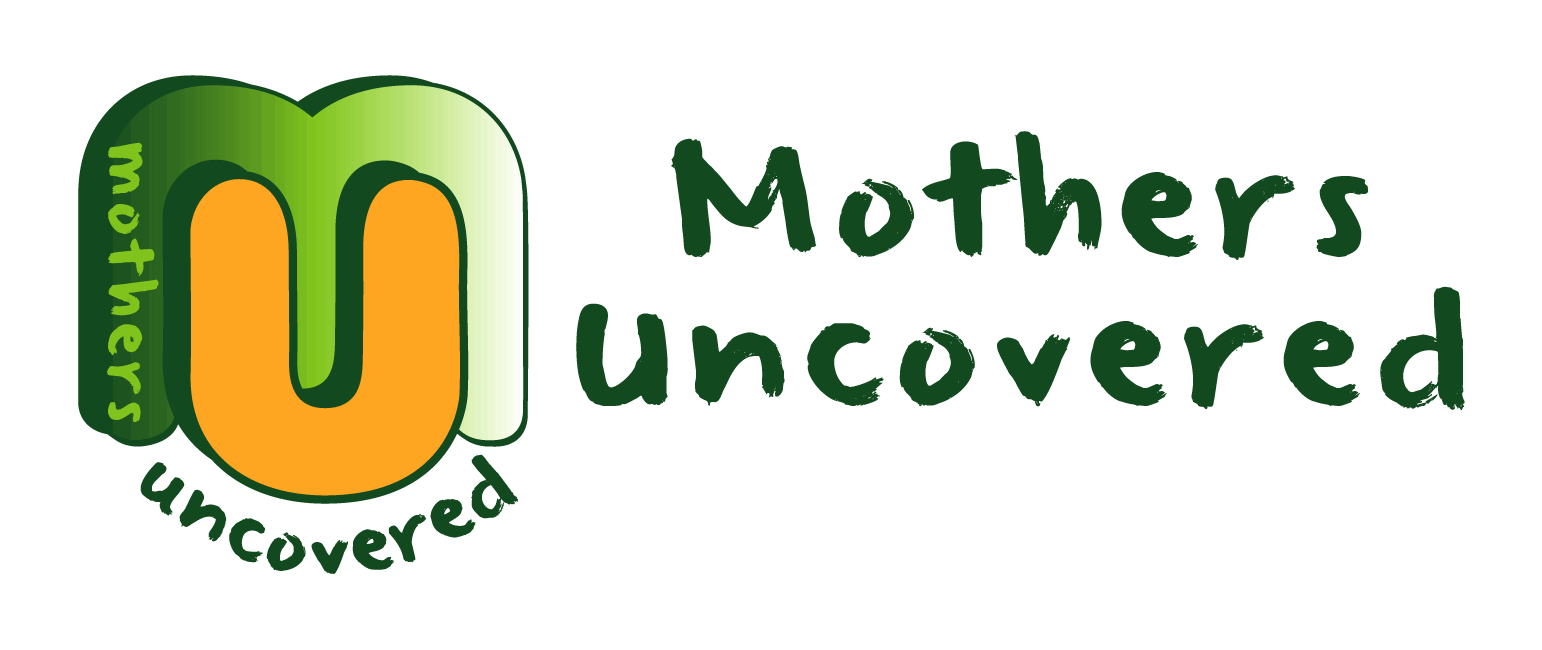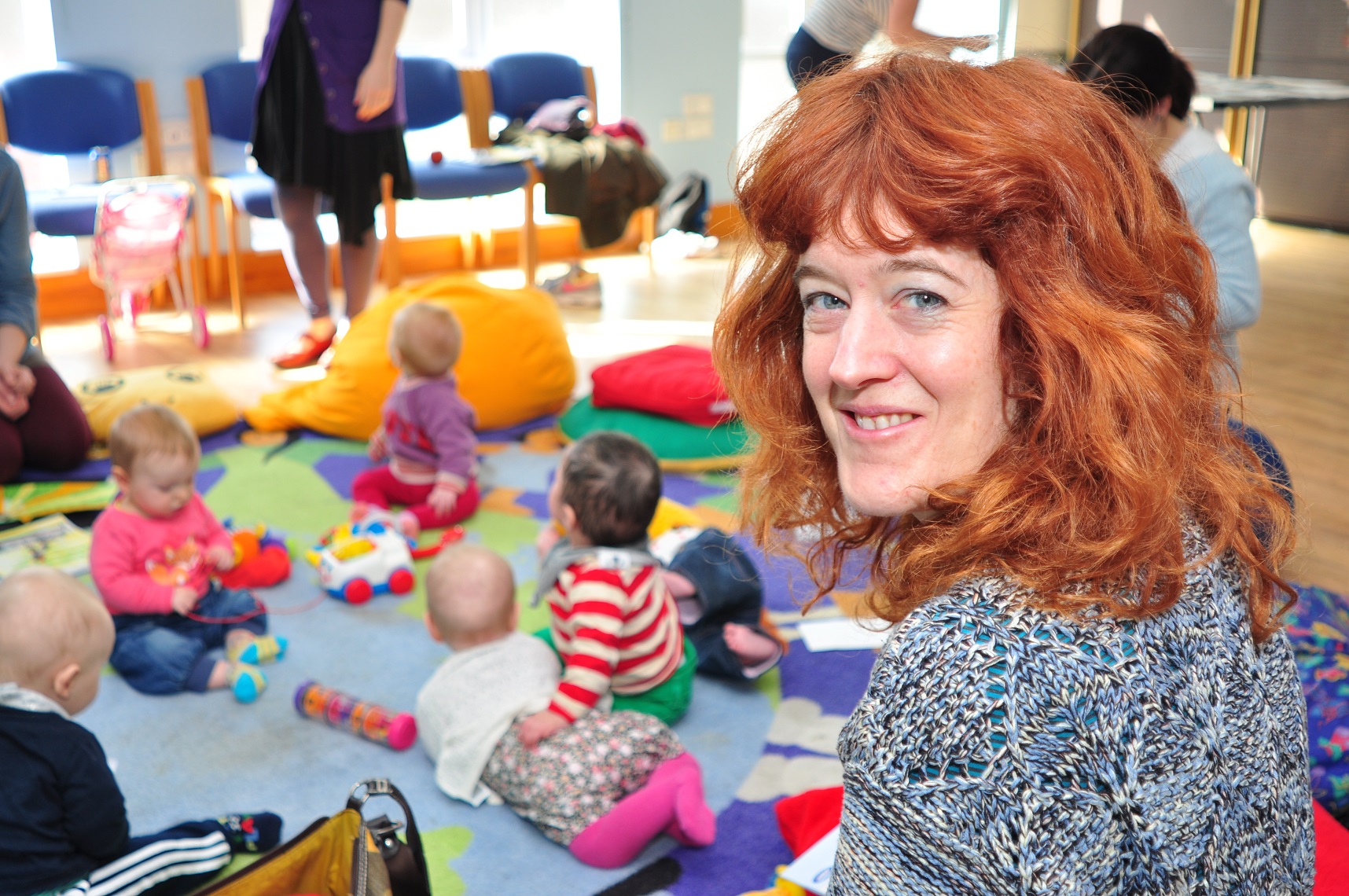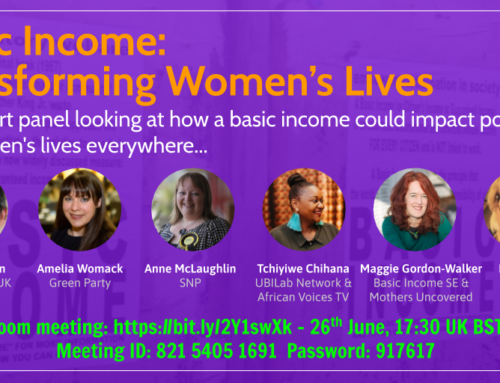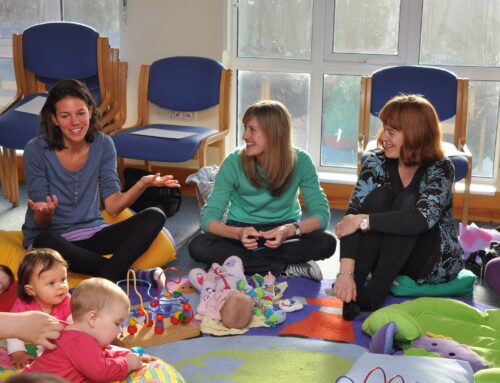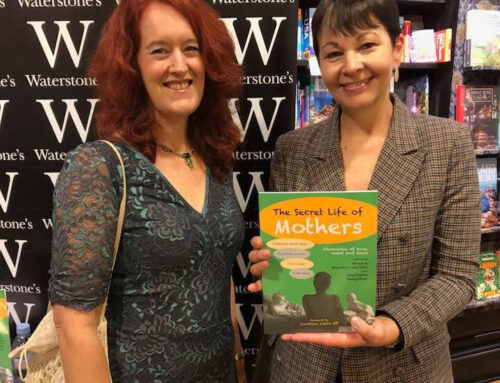Imagine a mother having just given birth. The midwife places the newborn in her arms and she will feel a mixture of exhaustion and ecstasy. ‘This is the beginning of the rest of my life. Everything’s going to be wonderful’, not, ‘Where’s the exit? This is all too much.’ She may get the baby blues for a few days or even weeks, but that’s just normal and will go away in time. This is the received wisdom, trotted out to first-time mothers. However, the reality for most women is somewhat different.
When I gave birth to my first child ten years ago in London, I was staggered as to how extraordinarily isolated I felt. I remember the sensation of being marooned in a big tunnel straight after his birth, cocooned from reality by the effects of the epidural. The midwife said, ‘Let’s get Mum up to the ward’ and I thought, ‘my Mum’s not here, is she?’ I couldn’t get my head round the fact that I was ‘Mum’. In the fog of the first few weeks, I kept thinking how hard everything was – I was conscious of being at odds with myself, although I’d give the impression that everything was fine. At any activities I found the focus was always on the babies and all the conversation related to that.
There’s a form you fill out at your six-week check at the doctor that includes questions such as, ‘Have you ever felt like harming yourself or your baby?’ I didn’t feel that, but who would want to tick ‘yes’ to this and have herself branded as an unfit mother? To admit that you are finding so difficult what many thousands, including your own mother, have done before you. That this longed-for bundle of joy should be so daunting. Add to this the stigma that still exists around mental health issues and it’s no wonder the feeling of panic sets in. The phrase ‘post-natal depression’ is itself depressing! It is more correctly known as post-natal illness and it’s estimated that it affects between 70 and 100,000 women and their babies in the UK every year. These are just the reported figures, the truth is many women suffer in silence.
We live in an increasingly fast-paced society, where you can leave hospital as quickly as a few hours after giving birth and are expected to get on with it. Gone are the days when the whole street would rally round to help the new family, while the mother rested and adjusted. Families these days are small, not extended, often you have moved away from where you grew up; women delay having children to pursue careers, so to be suddenly thrust into the role of housebound new mum without a support network can be terrifying.
Occasionally there is a high-profile case where the public can gasp at the horror of a woman who has killed her own child. There is far less coverage for a mother who has taken her own life. More than ten per cent of maternal deaths – that’s deaths within one year of giving birth – are caused by suicide. This doesn’t even include suicides which come later, in some cases much later. In 2000 there was a mother from Cheshire who lay down in front of a train because she had never recovered from the depression that started with the birth of her 24-year-old son.
What I would like to see is equal weight being given to the post-natal period as to the pre-natal. It needs to be realised that the mental health of a mother following a birth is as important as her physical health beforehand. When the mother’s needs are not met, nor are those of her family. Postnatal depression has been associated with an increase in family conflict and has a detrimental impact on a partner’s mental health, as well as causing financial problems. The impacts of perinatal mental health problems on children include emotional difficulties and behavioural problems and special educational needs. You may think if you’re not a parent, this doesn’t affect you. It does. You might not be a mother, but we all have, or had, a mother and your upbringing may affect you more than you realise.
You could well be thinking what will all this cost? Frankly, we can’t afford NOT to take action. According to the Maternal Mental Health Alliance’s report last October, inadequate maternal care costs the UK £8bn a year, with a comparatively modest £337m required to tackle it. EIGHT BILLION POUNDS EVERY YEAR on trying to close the stable door once the horse has bolted. Why are we playing catch-up instead of investing in preventative measures?
Why does the problem exist? It begins because women are not supported adequately around their birth, often seeing several different professionals during their pregnancy and labour. A traumatic birth can have a long-term impact on mental health. And once the baby is born, most women are signed off by their health visitor after ten days and left to get on with it.
there is still an insistence on dividing mothers into those with ‘baby blues’ (perceived as the vast majority) from those with post-natal depression (perceived as a small proportion). The latter are usually treated with medication and specialist counselling. These women are kept apart, in ‘closed groups’ at health clinics. I know this, because I have had a devil of a job infiltrating these groups to see if any of the women would like to come to Mothers Uncovered. It’s as if there’s a fear that they might ‘infect’ the other mothers.
To access a PND group you need to be referred by your doctor or health visitor. There is a shaming stigma of ‘not coping’. It is imperative that this period, with its rollercoaster of emotions, is reclassified as normal rather than extreme. I’m not disputing the fact that PND exists and sufferers of it may well need medication and counselling. However, every single mother I have spoken to in the last few years has felt they couldn’t find an adequate outlet for their feelings at the beginning. Were they all suffering from depression? Additionally, on some days they wanted to celebrate how much they loved being a mother and share that with others. They didn’t want to describe themselves as depressed then. Both the terminology and the attitude to this period of motherhood is wrong.Most women have ‘new motherhood syndrome’ in which it is perfectly normal to be blissfully happy one moment and in the depths of despair the next. If the right support were there in the first place, I firmly believe a lot of women would not develop PND.
Many women also feel they have no one to talk to. People might say there are church halls up and down the country packed with Mum & Baby groups, which is true. These are usually informal drop-ins however, not suitable for discussing issues that might be difficult and painful. The last thing a vulnerable new mother needs is to walk into a large room of chattering women who all seem to know each other. Courses run in children’s centres for new parents can help, but these are usually run by a health professional, creating an ‘us and them’ atmosphere.
This is why I set up Mothers Uncovered in 2008 for Livestock the registered charity I’m co-founder of. We have helped hundreds of women with our creative support groups focused on the mother, rather than the baby. Women meet weekly for five weeks in the same group, facilitated by mothers who are past participants. It helps hugely that those who are running the group are not present as experts or providing advice. As it says on our publicity: ‘We are not perfect mothers. We certainly don’t want to tell you how to be mothers. We are going through it all too. In short, we are just like you.’ Participants quickly feel able to open up as they realise they are not the only ones struggling, they begin to feel less isolated and start to take ownership of their lives and decisions. In the words of a past participant, ‘Mothers Uncovered fills a gap you didn’t even know was there.’
We believe it is essential that Mothers Uncovered is present everywhere, but like many small organisations, keeping afloat is sometimes a challenge. All that is required is a welcoming room and a facilitator to manage the sessions. And some tea and biscuits. The facilitators need a small amount of training and ongoing support, which can be provided by their peers. It’s not exactly the moon on a stick, is it?! I’ve set up a petition on Change.org addressed to the NHS & Public Health England. There’s a link to it on our website www.mothersuncovered.com
The last thing that marginalises mothers is how they’re presented in the media, which is full of opinions about motherhood, little jibes about the categories of mother: ‘career bitches, ‘yummy mummies’, ‘hippies breast-feeding their children into adulthood.’ There is an assumption that a mother’s day is filled by checking out the latest gossip on Mumsnet Towers and a spot of lunch, with a few nappy changes here and there. Very little is written by mothers detailing their life in that first year. It is recorded retrospectively, if at all. This is mostly because it can get to 2.00pm before a new mother can find the time to brush her teeth. Of the various articles written, nothing is more damning than pieces from women who have not been able to have children, castigating mothers as ‘moaning’. Yes, we’ve been having babies for centuries, they say, so why all this fuss now? Nobody expected bringing up children to be a breeze, but there is something about a mother’s state of mind in the months following the birth, hit by the juggernaut of responsibility, that sets it apart from the challenges faced later on in parenthood.
Then of course those celebrity mothers who lose their baby weight within 5 minutes. A couple of years back I saw a picture of Amanda Holden arriving at a Britain’s Got Talent audition. ‘Less than a month after giving birth to her daughter’ trumpeted the paper (probably the Daily Fail), ‘and after having been in intensive care, here she is “radiant” in blue silk dress by blah blah blah…’
There is the picture of her looking radiant, as promised. Her stomach is as flat as a young girl’s. Perhaps she’s been photo-shopped. Perhaps not. It doesn’t really matter when this is all we see. Women who give birth at the age of nearly 41 and spend time in intensive care should not look like this a few weeks later. As soon as she was released from hospital she must have been on a hardcore diet and exercise regime. And for what…? To show that she is still worthy of her crown as ‘Woman who Cries on Judging Panel’. She knows she must look perfect, every moment she is not in her own house, because if she allows it to slip, for even a second, there’s several hungry up and coming starlets desperate to be in her shoes.
Was it always this bad? Women have always been judged more on their appearance, rather than their ideas or accomplishments, this is not new. Are they not allowed to let real life show, even for a day or two…?
When I run Mothers Uncovered workshops, I ask participants to name mothers in the public eye that might be considered role models. There is always a thoughtful silence as they cast their mind over the various actresses, presenters, singers etc and concede that none of these women are shown mothering. Even when they are in their 43 page ‘Hello!’ feature special, everything is perfect, everything is manufactured.
This maybe wouldn’t matter, if it weren’t for the fact that the 99% of mothers who are not in the public eye feel inadequate next to these airbrushed lovelies. They feel fat, messy, exhausted, irritable, emotional. They ache all over. They wonder if they’ll ever be anything beyond ‘mum’ again.
In my case, like for so many women, I gradually realised that rather than being a strange freak, I was just a normal mother trying to cope with the enormity of the responsibility with inadequate preparation. That in turn put the feelings in proportion. I had a relatively mild case of depression (I suppose – I was never diagnosed), which lifted in time, For most women, they do just ‘get on with it’ and the memories of that turbulent time fade. By the time they re-enter the fray, they may find it hard to even remember that time clearly and may well not wish to, feeling thankful that they seem to have survived relatively intact. This is why the problem still continues. Just because women do ‘get on with it’ and seem to be managing later on, doesn’t mean they should have to. As a society we should offer more than that, especially when the support is easily achievable? And for the women whose lives are permanently blighted by their experiences of becoming a mother the situation must change.


